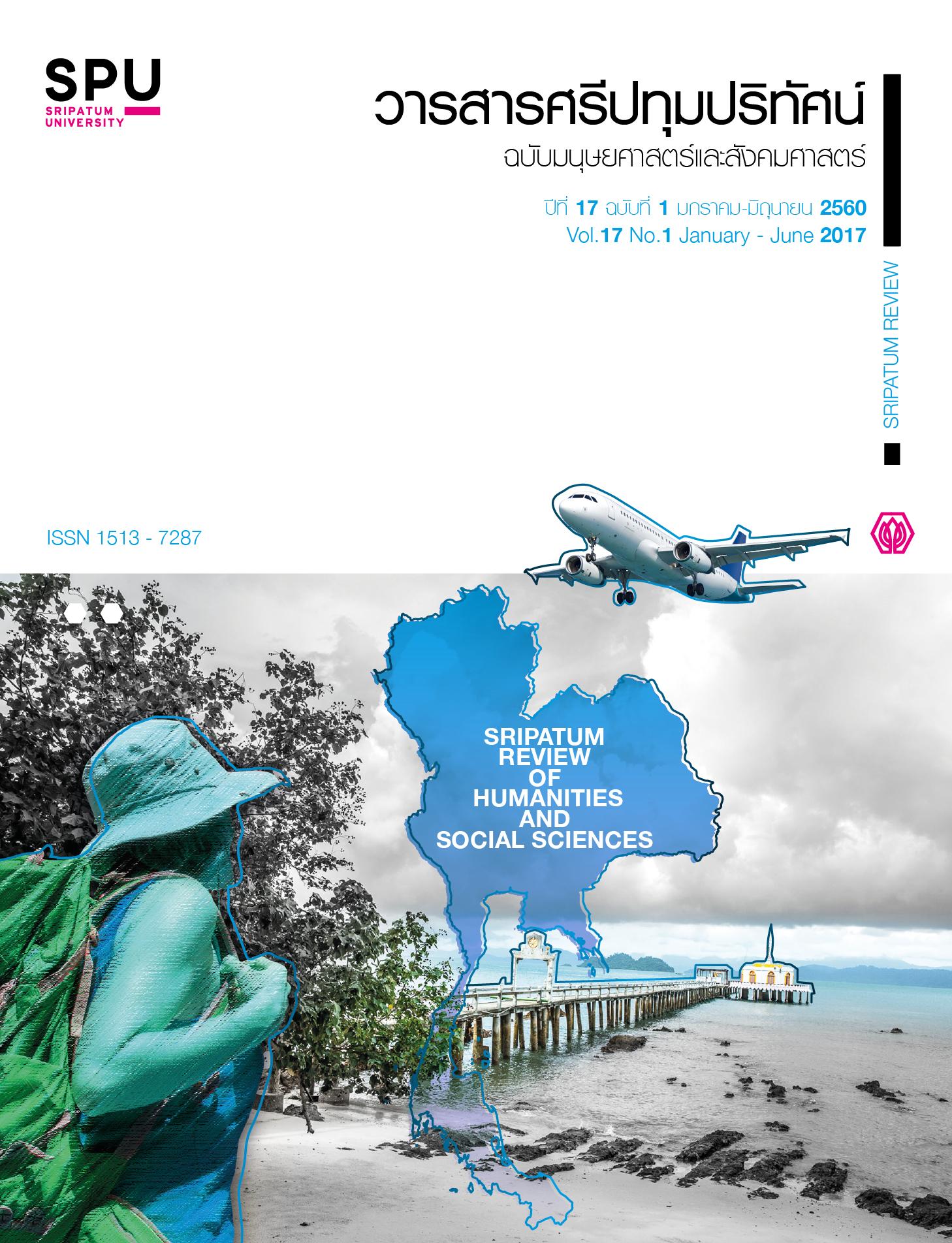A STUDY OF FACTORS OF TECHNOLOGICAL LEADERSHIP OF SECONDARY SCHOOL PRINCIPALS UNDER THE OFFICE OF THE BASIC EDUCATION COMMISSION, MINISTRY OF EDUCATION
Main Article Content
Abstract
The purposes of this research were to study factors of technological leadership and to confirm the congruence with the empirical data of theoretical model of technological leadership of secondary school principals under the Office of the Basic Education Commission, Ministry of Education. The research methodology consisted of 3 phases. The first phase was the synthesis of principles and theories and the interviews of 5 specialists. The second phase was the use of Delphi technique process involving 21 specialists. The third phase was the use of a questionnaire to collect quantitative data from 1,350 school principals and using confirmatory factor analysis to confirm the congruence of theoretical model of technological leadership of school principals. The employed research instruments were an interview structure, a questionnaire for use in the three rounds of Delphi technique, and a rating scale questionnaire for use in collecting empirical data from secondary school principals. The employed statistics for data analysis were the mean, standard deviation, median, inter-quartile range, and confirmatory factor analysis. The AMOS computer program was used for data processing. The research results were as follows:
- 1. Technological leadership of secondary school principals under the Office of the Basic Education Commission, Ministry of Education consisted of 7 factors, namely, (1) having knowledge of information technology; (2) using information technology in instructional activities; (3) using information technology in school administration; (4) encouraging and supporting the use of information technology in management and instruction; (5) using information technology in evaluation and measurement; (6) commitment to information technology ethics in the use of information technology; and (7) changing the use of information technology to cope with changing situations.
2. Results of the confirmatory factor analysis indicated that the theoretical model derived from the Delphi technique was congruous with the empirical data with value of 272.448 with probability value of 0.000 and degree of freedom = 92, CMIN/DF = 2.961, RMSEA = 0.038, GFI = 0.982, AGFI = 0.954, NFI = 0.994, CFI = 0.996. These results implied that the model of technological leadership of secondary school principals under the Office of the Basic Education Commission, Ministry of Education, developed by the researcher, had construct validity and conform to the empirical data.
Article Details
1. กองบรรณาธิการสงวนสิทธิ์ในการพิจารณาและตัดสินการตีพิมพ์บทความในวารสาร
2. บทความทุกเรื่องจะได้รับการตรวจสอบทางวิชาการโดยผู้ทรงคุณวุฒิ แต่ข้อความและเนื้อหาในบทความที่ตีพิมพ์เป็นความรับผิดชอบของผู้เขียนแต่เพียงผู้เดียว มิใช่ความคิดเห็นและความรับผิดชอบของมหาวิทยาลัยศรีปทุม
3. การคัดลอกอ้างอิงต้องดำเนินการตามการปฏิบัติในหมู่นักวิชาการโดยทั่วไป และสอดคล้องกับกฎหมายที่เกี่ยวข้อง
References
นิคม นาคอ้าย. 2549. “องค์ประกอบคุณลักษณะผู้นำเชิงอิเล็กทรอนิกส์และปัจจัยที่มีอิทธิพลต่อประสิทธิผลภาวะผู้นำเชิงอิเล็กทรอนิกส์สำหรับผู้บริหารสถานศึกษาขั้นพื้นฐาน.” วิทยานิพนธ์ปริญญาดุษฎีบัณฑิตสาขาวิชาการบริหารการศึกษา บัณฑิตวิทยาลัยมหาวิทยาลัยศรีนครินทรวิโรฒ.
สมหมาย อ่ำดอนกรวย. 2556. “บทบาทผู้บริหารสถานศึกษาในศตวรรษที่ 21 (ออนไลน์).” สืบค้นเมื่อวันที่ 19 เมษายน 2559.
โสภา ตุ้มช้าง. 2550. “ทักษะการบริหารของผู้บริหารที่ส่งผลต่อคุณภาพของระบบสารสนเทศของโรงเรียนสังกัดกรุงเทพมหานคร.” วิทยานิพนธ์ปริญญามหาบัณฑิตสาขาวิชาการบริหารการศึกษา บัณฑิตวิทยาลัยมหาวิทยาลัยศิลปากร.
American Institute for Research: AIR. 2009. “Evaluation of the school technology leadership initiative :external evaluation report #2.” Washington,DC : American Institutes of Research.
Fornell, C., & Larcker, D. F. 1981. “Evaluating Structural Models With Unobservable Variables and Measurement Error”, Journal of Marketing Research, Vol. 18, pp. 39-50.
Hair, J. F., Tatham, R. L., Anderson, R. E. & Black, W.2009. “Multivariate data analysis.” USA :Prentice Hall.
International Society for Technology in Education:ISTE. 2009. “National educational technology standards for administrators.” Washington, DC :Eugene, OR.
Pawlowski, J. M., Schrader, H., Khatami, P., & Adelsberger, H. H. 2008. “The Globalization Technology Competency Framework for the Knowledge Worker-an E-Learning Program for Enterprise Resource Planning.” Retrieved June 11, 2014.


